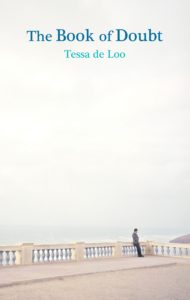(Harlekeno)
Tessa De Loo

Even though he is the son of a Dutch mother Said has a Moroccan first name in memory of the virtuoso Oud player his mother fell in love with twenty years ago. When she found out she was pregnant, he ran off and returned to Morocco. Said decides to look for his father, in the hope of finding a new identity in a new world. His childhood friend Hassan accompanies him. They only have one starting point – a grocery shop in Fez. From there they follow the trail of the Oud player, who leads them from the cedar woods of Ifrane to the red dunes of the desert to the high Atlas, where Kasbahs are locked in a losing battle with decay. The two friends, who as children shared shared an imaginary land which they both ruled – try to rekindle their friendship.
Said’s search sends him deeper into disillusionment and into the arms of Islam, where he tries to find something to hold on to. But there is a disturbing presence. A seemingly fictitious character from their imaginary land infiltrates Said’s. While Said desperately tries to get rid of him, different aspects of his life, more and more beyond his control, reach an apotheosis resulting in one final deed affecting man and beast alike.
‘Tessa de Loo’s novel does not tell the expected story of a young man’s introduction to radical Islam. Saeed’s conversion remains a journey of individual disillusionment, as the novel builds towards its violent climax. The story is certainly moving in parts and de Loo does well in capturing the juxtaposition of the familiar and the alien in the Moroccan-set episodes. She describes the exotic “jumble of articles” Saeed encounters, “carpets, slippers, jewels, jellabahs, copper kettles and water pipes”, each nevertheless containing “something of him”’. Times Literary Supplement
‘Written without rose tinted glasses or succumbing to clichés… De Loo is and remains an authentic born story teller.’ Rotterdams Dagblad
‘Imagination and violence play a big part in Tessa de Loo’s 6th novel, and the first ‘big’ one since THE TWINS. It is also a very relevant novel. HARLEKINO takes on many contemporary themes: the clash between religions, displacement, migration, friendship. Together with the original theme of the search for identity, that makes of HARLEKINO a great novel. The search for the father is described in such detail that the desert sand practically crunches between the pages.’ Parool
‘De Loo is a fine novelist. A tale of discovery through the eyes of a young man whose father was a migrant. Saeed goes to his paternal country and there begins a journey that could be a fable for many in the modern world. De Loo handles her characters carefully and draws the reader gently into their world of imagination and reality.’ Fitzrovia News
‘Even though he is the son of a Dutch mother, Saeed has a Moroccan first name in memory of the virtuoso oud player his mother fell in love with twenty years ago. When she found out she was pregnant, he ran off and returned to Morocco. Saeed decides to look for his father, in the hope of finding a new identity in a new world. His childhood friend Hassan accompanies him. Back then they shared an imaginary land which they both ruled. Now they only have one starting point – a grocery shop in Fez. From there they follow the trail of the oud player, who leads them from the cedar woods of Ifrane to the red dunes of the desert to the high Atlas, where Kasbahs are locked in a losing battle with decay. Saeed’s search sends him deeper into disillusionment and into the arms of Islam, where he tries to find something to hold on to. But there is a disturbing presence. A seemingly fictitious character from their imaginary past infiltrates Saeed’s quest. While Saeed desperately tries to get rid of him, different aspects of his life, more and more beyond his control, reach an apotheosis resulting in one final deed affecting man and beast alike.’ bookpeople.co.uk
Sales
- De Arbeiderspers NL
- Bertrand Editora Portugal
- Haus UK (WEL)
Material: Dutch edition (552pp); English edition (420pp)